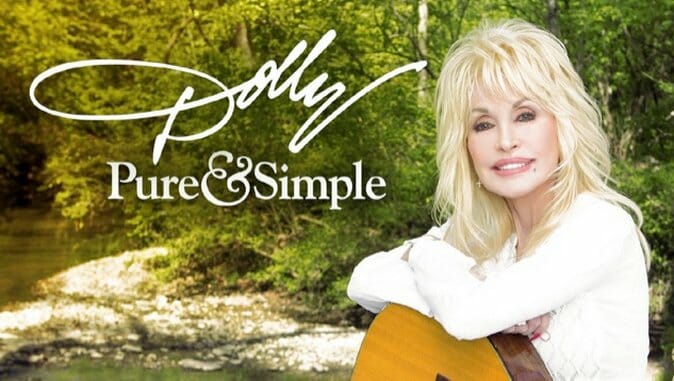A Life of Many Colors: Catching Up with Dolly Parton

Dolly Parton’s career has been incredible by any standard, racking up chart-topping singles along with dozens of beloved albums that delve beyond the borders of country music into pop and bluegrass and collecting plenty of awards and accolades along the way. But Parton isn’t just a musician—she’s built her career around iconic acting roles, bolstered growth in a Tennessee town with her ventures in tourism and hospitality, funded philanthropic efforts that reach across the continent, and done all of it with a business sensibility that should be held up as something to aspire towards. So while Parton is preparing for the release of her 43rd (Yes. FORTY. THIRD.) studio full-length, Pure and Simple, out tomorrow, we had to catch up with the 70-year-old country music legend to talk about plenty more, including her upcoming TV special, the various releases in the works in support of her foundation, and the background that built it all. Check out the interview in full below.
Paste: Pure and Simple is your 43rd studio release. Do you have a favorite album, and what were you hoping for when you went into this album?
Parton: They’re all special. You know, if you’re a songwriter, your songs are like your kids—some are better than others, but they’re all yours! I don’t know that I have a real favorite album. I’ve enjoyed doing all of them over the years, and I’m just so happy that they’re still going strong. This particular one, it just seemed to be a good time to write an album of all love songs.
Paste: What else were you going for when you went in to record this latest album?
Parton: Well, when we went on tour together we were calling it Pure and Simple because we broke down the band to where there’s just very few of us on stage. Pure and Simple seemed like the natural thing to call it. So I thought, ‘Well, we need an album called that.’ Then, of course, if we have an album called that, we needed a song called that! And I thought, ‘Well, what am I going to write about?’ I thought pure and simple love would be good. This year is my 50th anniversary with my husband, Carl Dean, and I thought, ‘Well I could write a whole album of just love songs.’
Paste: That’s something I wanted to ask you about—this is obviously a record full of love songs, and it got me to wondering what you think makes a good love song, when you’re writing or when you’re listening.
Parton: I love to write about everything. Love is always good. As you well know, I love story songs. Usually, my albums have a lot of things that tell stories. But love is a story—there’s nothing better than a good love story. I try to cover all the emotions of love in this particular album, not just pure love but flirty love, passionate love, sexy love, cheatin’ love—just all the colors of love. I guess you could call the album Love of Many Colors. I tried to look for, if it’s not something I’ve experienced myself, I try to write for other people who are not able to write, so there are a few songs in the album that I’ve based off of relationships of other people that are dear to me.
Paste: You’ve been in music and country music for a long time. Are there any recent albums or artists coming up who have caught your ear?
Parton: I don’t really have time to listen as much as I’d really like to, but there are a lot of wonderful new people out there. There’s new ones coming along every day, and there’s always going to be a Taylor Swift and a Carrie Underwood and a Miranda Lambert, who I especially love a lot. I’ve always been a huge fan of Allison Krauss. I just know they’re all waiting in the wings—there’s a lot of great talent out there, and I’m open and excited to support them and to see what people are coming up with next for country music.
Paste: It’s great to hear you name all of these women in country, because I think a lot of women in music and outside of music look to you as a role model. One thing I’ve always admired was your business savvy—you own all of the publishing rights to your songs, and you even denied Elvis a publishing split when he was interested in recording “I Will Always Love You.” What helped you build your business sense, especially as a young artist? Do you have any advice for young creatives?
Parton: Well, my daddy had a good business mind. My daddy wasn’t educated, but he was just one of those really smart people who kind of just knew what to do and when to do it, and how to do it. I’d like to think that I got a little bit of my business sense from him.
-

-

-

-

-

-

-

-

-

-

-

-

-

-

-

-

-

-

-

-

-

-

-

-

-

-

-

-

-

-

-

-

-

-

-

-

-

-

-

-








































